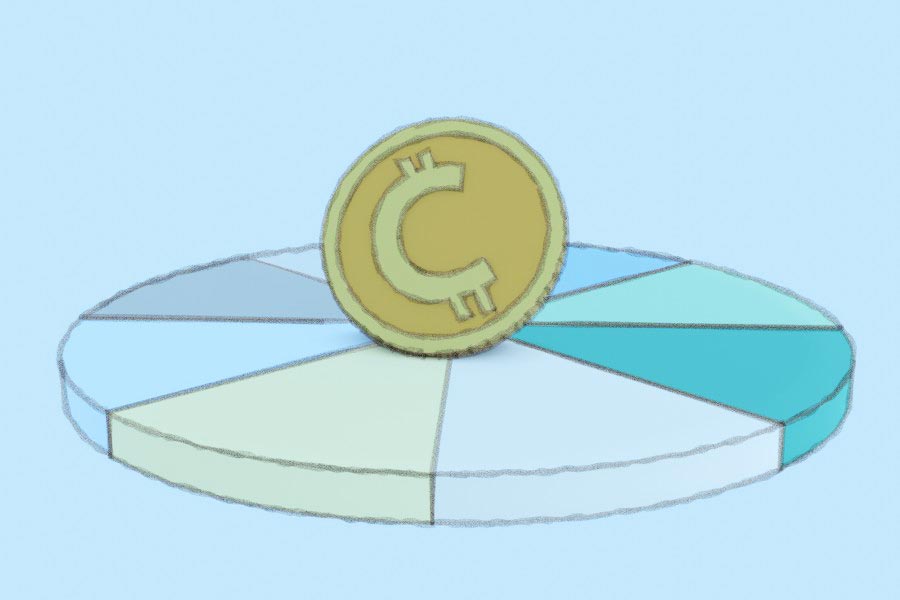Solana ETPs Cleared to Trade: What to Know

Trading of the first exchange-traded product (ETP) linked to the spot price of cryptocurrency solana began Tuesday, October 28, 2025, after the U.S. Securities and Exchange Commission (SEC) gave the go-ahead.
Solana is the digital currency of the Solana blockchain and, as of October 2025, ranked as the world's sixth-largest cryptocurrency by market cap, at more than $111 billion. Solana is the third cryptocurrency the SEC has approved for spot ETPs, following bitcoin and ether in 2024. These previous approvals helped change perceptions of cryptocurrencies, making them more palatable to mainstream investors. However, the SEC continues to warn of the risks of largely unregulated cryptocurrency markets, including scams and price volatility.
Interest in cryptocurrencies has soared despite their unique risks. Thousands of coins have been trading on crypto exchanges for years, while mainstream exchanges have offered futures contracts, options, and, more recently, ETPs as vehicles to gain exposure to some of them.
Now investors who might not otherwise take a solana position can do so with the same convenience of buying equity exchange-traded fund (ETF) shares. The funds are expected to be listed on traditional exchanges like the New York Stock Exchange and Nasdaq®.
Despite this move into the mainstream, crypto remains quite different from traditional assets like stocks and bonds, so it's important to be fully aware of the risks.
Here are some things to know.
What's the difference between solana and other cryptocurrencies?
Solana, bitcoin, ether, and other cryptocurrencies, also referred to as coins, are virtual, digital currencies usually based on a blockchain—a public record of digital transactions secured through cryptography. Unlike government-issued currencies like the U.S. dollar, cryptocurrencies are not controlled or backed by any government or central authority. They enable online payments to be made directly from one party to another without a third-party intermediary like a bank, and the blockchains underlying them can serve as platforms for applications like smart contracts and decentralized financial applications.
The perceived value of blockchain-linked coins stems from several factors. Many consider bitcoin a hedge against inflation due to its finite supply, while ether, XRP, and solana are seen as "digital oil"—that is, necessary to the operations of the blockchains and their hosted apps.
Anatoly Yakovenko and Raj Gokal introduced the Solana blockchain in 2020 to compete with the Ethereum blockchain. They designed it with the goal of being faster and more efficient than Ethereum—thanks to a different verification mechanism—and it's been especially popular with meme coin developers. The solana currency is used to pay user fees and transactions on the blockchain.
How are cryptocurrency ETPs traded on Schwab?
Solana ETPs are available to trade on Schwab.com and the thinkorswim® platform, along with spot bitcoin and ether ETPs. For more on trading cryptocurrencies, visit schwab.com/cryptocurrency.
What are the primary risks of bitcoin, ether, and other cryptocurrencies?
Despite the SEC allowing trading of some crypto ETPs, cryptocurrencies themselves remain lightly regulated compared with the U.S. stock market. The SEC has signaled a hands-off approach, meaning there's heightened risk for investors in crypto ETPs and other investment products. The crypto industry and markets are constantly evolving, as are key players, and the regulatory environment could change quickly.
Additionally, the prices of cryptocurrencies and related securities can be volatile. Investors should consider their risk tolerance, do their homework, and make sure any crypto-based investments are part of a diversified portfolio and aligned with long-term financial goals. ETPs also have their own distinct risks and potential drawbacks that investors should carefully weigh. It's advisable to study an ETP's prospectus to fully understand its investment objectives.
What are potential benefits of cryptocurrency-based ETPs?
ETPs, which trade on exchanges like stocks, have grown rapidly since the first of these funds launched in the early 1990s. At the end of 2024, there were more than 3,600 U.S.-based ETFs (a type of ETP) with combined assets totaling more than $10.3 trillion, according to the Investment Company Institute. ETPs can also offer ways to invest in assets like commodities and real estate that individual investors may otherwise have difficulty accessing.
The same is now true for solana, bitcoin, and ether. Investors can now buy shares in these ETPs and gain exposure to the underlying cryptocurrencies' movements. Assuming the ETP has sufficient liquidity—enough buyers and sellers in the market day after day—an investor could enter or exit a position in a spot crypto ETP with relative ease, just as they would with stocks. (Bearish traders could also sell ETP shares "short" if they believe the price of the underlying asset may decline, though the risk is potentially unlimited.)
It's important to remember that because these crypto ETPs are new, they may or may not be liquid enough to enable the quick and efficient trade execution investors have come to expect with popular stocks and ETPs. A market lacking liquidity could lead to unusually wide bid/ask spreads and difficulty executing trades, especially during volatile environments.
Have professional traders embraced cryptocurrencies?
Trading volumes of crypto investment products have been rising along with crypto prices. Cryptocurrencies rallied to all-time highs in recent months after the 2024 U.S. presidential election signaled the likelihood of pro-crypto regulatory changes.
The CME Group reported a big jump in trading of crypto products during the second quarter of 2025, with its entire crypto product suite seeing an increase of 140% from the same period a year earlier, and trading of crypto futures and options contracts hitting nearly $10 billion per day. Meanwhile, bitcoin-based ETPs alone crossed the $150 billion mark in net assets in September 2025.
Bottom line
Schwab continues to monitor cryptocurrencies as regulations and technology evolve. While some traders have made money speculating on the changing prices of ether, bitcoin, and solana, many others have lost money. We suggest investors approach them as a speculative asset primarily for trading with money outside a traditional long-term portfolio.